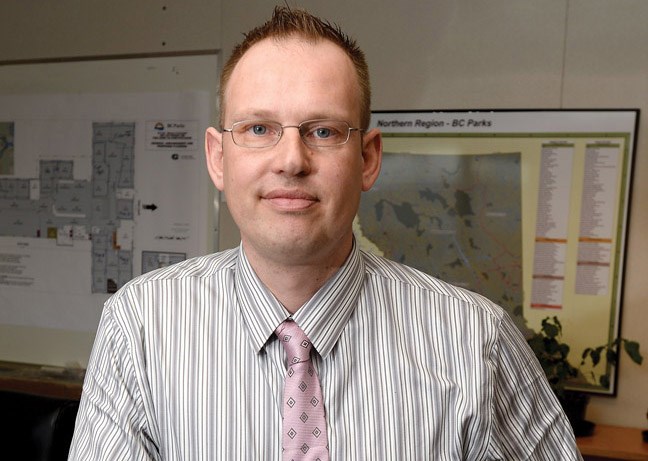It's a big change from breaking up people smuggling rings in the Netherlands to confronting a organized wildlife poaching scheme in the heart of British Columbia, but the latest addition to the Conservation Officer Service's major investigation unit in Prince George isn't complaining.
Fabian Muhlenbruch moved to this country because he fell in love with a Canadian woman and, like many transplants from Western Europe, he's also fallen in love with the land itself.
The shear size of Canada, combined with all it has to offer in terms of nature and wildlife, has left Muhlenbruch in awe. Simply seeing the nighttime sky is a novelty.
"In Europe, it's so dense that when darkness falls it doesn't even get dark anymore, there is so much artificial light," Muhlenbruch said. "When I came to Canada, I said 'it actually gets dark here.' I was so amazed by that."
Now he wants to help protect all those natural attributes that make this country so notable.
Under a reorganization of the Conservation Officer Service, there are now major investigation units based in Chilliwack, Kamloops and Prince George. Each unit is made up of four detectives and a supervisor and their main job is to take on the complex cases that the regular conservation officers simply do not have the time for.
Muhlenbruch is unique in that he's one of the few who's been hired from outside the service.
"Generally, we've hired from within," said Muhlenbruch's supervisor, Rob Groeger. "We've kind of depleted the interest within ourselves so we're looking outside for skilled and knowledgeable people."
Muhlenbruch had 10 years experience on the police force in Netherlands, moving up from constable to detective and into intelligence and did some work in Afghanistan in 2010.
Despite that, getting his skills recognized in Canada has been difficult - he checked bags at airport security in Ottawa for a spell - but he was hired by the Conservation Officer Service in May 2015.
His training included learning how to ride snowmobiles and all-terrain vehicles so he can help with the regular duty officers if need be. But Groeger said Muhlenbruch came to the Conservation Office Service with a special skill set that was recognized and led to his hiring.
Among Muhlenbruch's initial assignments is diving into one of the largest environmental catastrophes in B.C.'s recent history. He is sifting through evidence related to the August 2014 breach of the tailings pond at the Mount Polley open pit mine near Williams Lake.
In December, the B.C.'s chief inspector of mines recommended to Crown counsel that no charges be issued against the mine's owner, Imperial Metals, for the failure, which sent 21 million cubic metres of potentially toxic tailings into the Quesnel Lake watershed.
But with the help of the federal Department of Fisheries and Oceans, the Conservation Officer Service is going through documents seized during February 2015 raids in Imperial's Vancouver and Interior offices.
Investigators are looking for potential violations of environmental laws that could result in charges or fines. That work is expected to be completed this year.
There are differences between the country's two legal systems, but Muhlenbruch said the detective work is basically the same in Canada as it is in the Netherlands.
"You still have a certain skill set you can utilize," Muhlenbruch said. "It's good to be back in the game."
- with files from Gordon Hoekstra, Vancouver Sun



